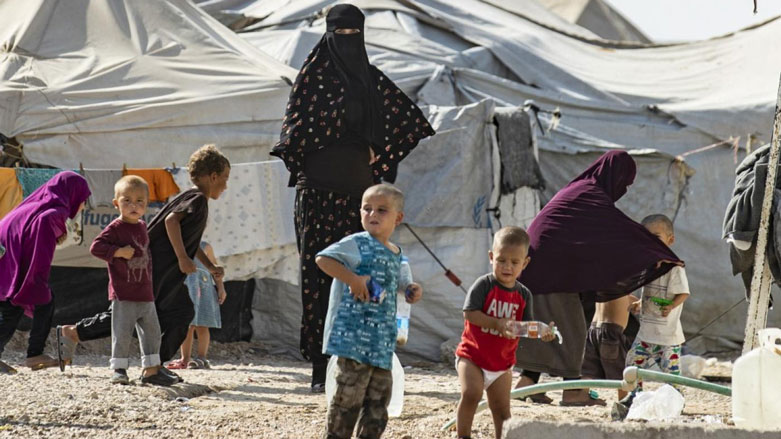Former MP in Iraqi parliament criticizes Baghdad for repatriation of ISIS families from Syria

ERBIL (Kurdistan 24) – A former Iraqi lawmaker on Sunday claimed that six ISIS families out of 100 had disappeared recently as they were repatriated from the notorious Syrian al-Hol camp to a facility in northern Iraq.
Ten Iraqi buses carrying around 90 families quietly left the al-Hol camp in northeast Syria on Tuesday, driving towards the al-Jada'a camp south of Mosul.
A security source in Nineveh province told Kurdistan 24 Sunday "nearly 100 families" arrived on May 25. They added that a second group of "roughly the same number" of families began moving Thursday.
Repatriating families with ISIS links from Syria to Iraq comes as part of an understanding between the Autonomous Administration of North and East Syria (AANES), the International anti-ISIS Coalition, and Baghdad, the source explained.
However, Vian Dakhil, a former lawmaker in the Iraqi parliament, sharply criticized the Iraqi government for repatriating ISIS families close to areas where the terrorist organization killed thousands of civilians.
Dakhil called the repatriation deal "suspicious" in a social media post and claimed several families had mysteriously disappeared during their return.
"Does the government explain to us the reasons and circumstances of how six of these families fled at the Iraqi-Syrian border in broad daylight, with all the security forces accompanying them?"
The majority of al-Hol’s residents are Iraqis and Syrians, but the camp also includes a large number of foreign families thought to be tied to the Islamic State. According to the United Nations, there are about 62,000 people still in the camp, including tens of thousands of women affiliated with ISIS, along with their children.
Some countries have refrained from taking back their citizens, citing security reasons, or have sought to strip them of their citizenship because of their affiliation with ISIS.
The Syrian Democratic Forces (SDF) are still detaining about 1,600 Iraqis who fought among ISIS forces, according to a United Nations report published in February.
Editing by Khrush Najari
